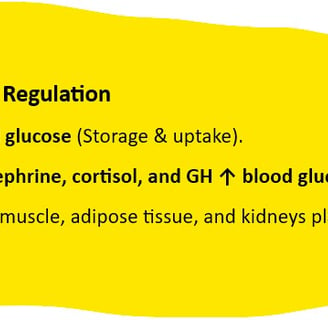Blood Glucose & Metabolic Adaption in Starvation
Regulation of Blood Glucose in the Body
Maintaining blood glucose levels within a normal range (70–110 mg/dL) is essential for homeostasis. The body regulates glucose levels through hormonal control, metabolic pathways, and organ-specific functions.
1. Hormonal Regulation of Blood Glucose
Several hormones control blood glucose by either increasing or decreasing its levels.
A. Hormones that Decrease Blood Glucose (Hypoglycemic Hormone)
🔹 Insulin (Secreted by β-cells of the pancreas)
Promotes glucose uptake by cells (via GLUT4 in muscle & adipose tissue).
Stimulates glycogenesis (storage of glucose as glycogen in liver & muscles).
Inhibits gluconeogenesis and glycogenolysis.
Enhances lipogenesis (conversion of glucose to fats).
📝 Effect: Lowers blood glucose levels after a meal (Postprandial state).
B. Hormones that Increase Blood Glucose (Hyperglycemic Hormones)
1️⃣ Glucagon (Secreted by α-cells of the pancreas)
Stimulates glycogen breakdown (glycogenolysis) in the liver.
Promotes gluconeogenesis (formation of glucose from non-carbohydrate sources).
2️⃣ Epinephrine (Adrenaline) (From adrenal medulla)
Increases glycogenolysis in muscles and liver during stress.
Inhibits insulin secretion.
3️⃣ Cortisol (From adrenal cortex)
Enhances gluconeogenesis by breaking down proteins into amino acids.
Reduces glucose uptake by tissues.
4️⃣ Growth Hormone (GH) (From anterior pituitary)
Decreases glucose uptake by muscles and fat.
Increases lipolysis and gluconeogenesis.
📝 Effect: Increases blood glucose levels during fasting, stress, or energy demand.
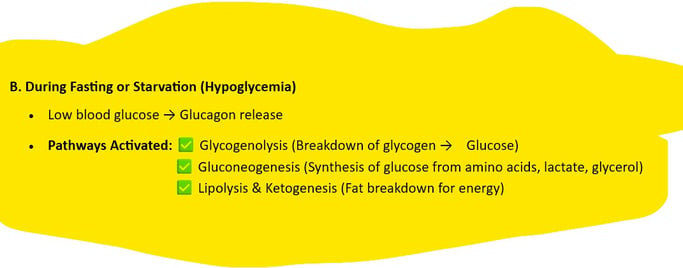


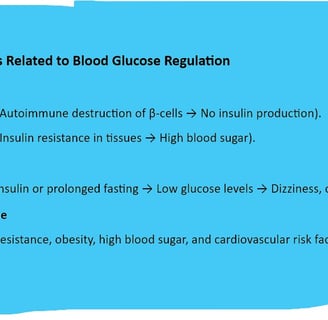
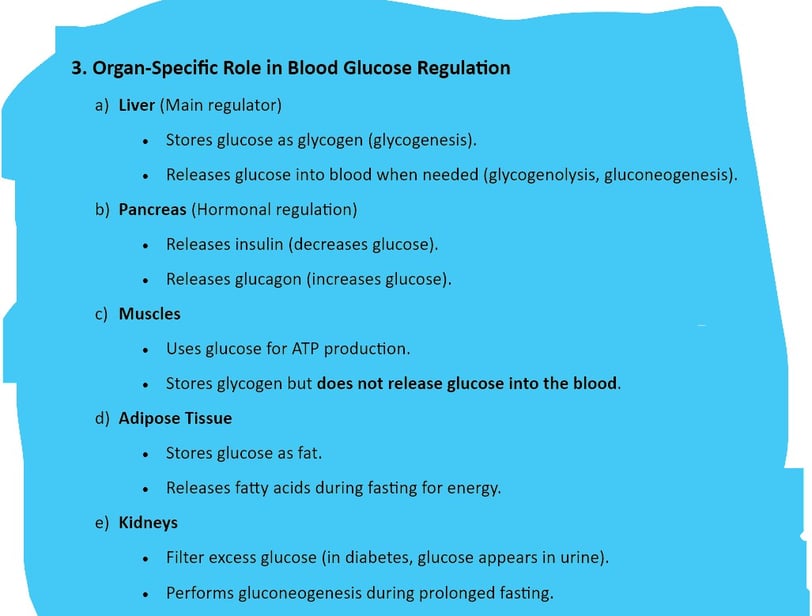

2. Metabolic Pathways Controlling Blood Glucose
3. Organ-Specific Role in Blood Glucose Regulation
4. Clinical Conditions Related to Blood Glucose Regulation & Diabetes Mellitus
Summary
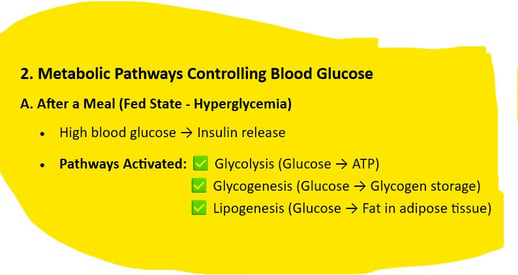

Join us to explore medical biochemistry intricacies.
WRITE TO US
© 2024. All rights reserved.
JOIN OUR NEWSLETTER


